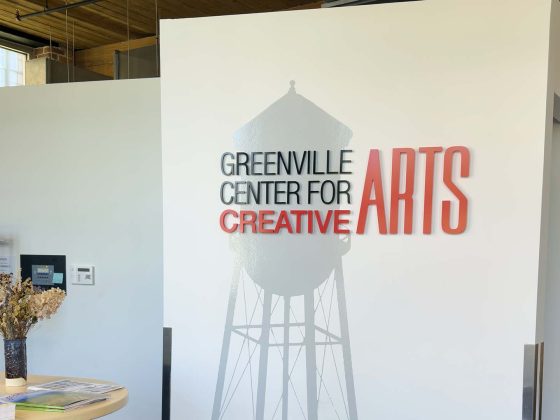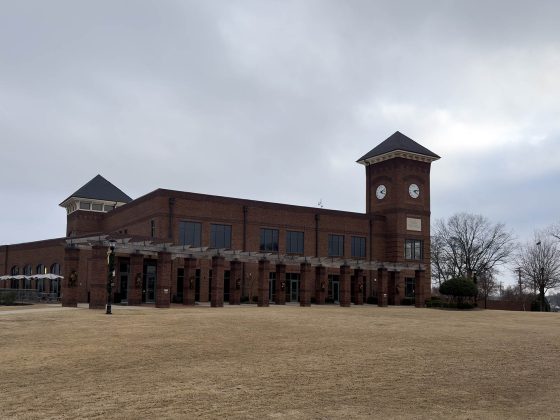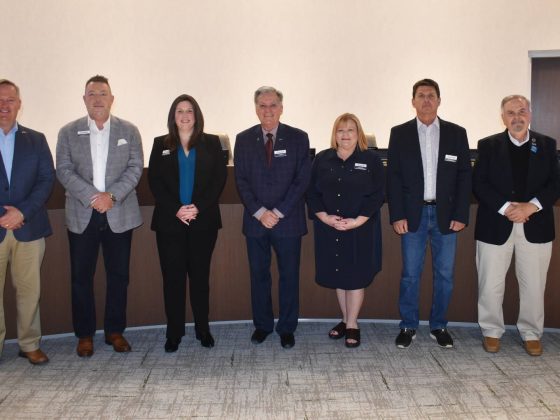Students with disabilities who receive special education through Greenville County Schools have a team of individuals supporting them.
Parents and guardians work with teachers, district personnel, counselors and others to ensure each child receives the services they need to succeed in school. GCS has 12,588 students with disabilities, each with an individualized education plan required by the Individuals with Disabilities Education Act.
A group of moms are advocating for a similar collaborative effort between parents and the school district through the creation of a special education advisory council to address districtwide issues. Parents, students, special education teachers, paraprofessionals, therapists, district personnel and others would be on the council.
Allison Huffstutler, a GCS parent advocating for the council, said a special education advisory council would specifically help parents have a seat at the table to work in collaboration with the district to address systemic special education issues.
“We’re not looking to fix 12,588 plans,” Huffstutler said. “We’re looking through some broader issues that we are seeing consistently from all of these phone calls we receive. Those are the things we want to talk about and address.”

Systemic change
Creating a special education advisory council is not a new concept. Advisory councils have been formed by school districts across the country including in California, Kansas, Massachusetts and more.
The U.S. Department of Education’s Office of Special Education and Center for Parent Information and Resources created a 67-page guide to help districts effectively form local special education parent advisory councils.
According to the guide, these types of advisory councils are used to look at systemwide issues that affect more than one student or family in the district. The council would then be able to advise, advocate and offer guidance to district leadership on how to solve the issues.
Amy Hibbs, a GCS parent advocating for the advisory council, believes several systemic issues concerning special education need to be addressed by GCS, including improved communication between parents and schools. She said issues can include things like parents having access to their student’s test scores or receiving regular updates on what their children are learning about in school.
Another issue parents have identified is a need for more support during the transitioning process of students with disabilities. This includes when a student moves up through grade levels and schools, and even after graduation.
“For a lot of students with disabilities it can be challenging because, depending on their disability, they might be very comfortable with where they are,” Huffstutler said. “They don’t like change. It’s a new environment. There’s a new navigation.”
Huffstutler said the council would hold parent meetings to learn about the other systemic issues that are impacting special education services. These talking points would then be brought before the entire board during regular joint meetings with the district to discuss and work on.
Ongoing advocacy
Hibbs, Huffstutler and three other GCS parents formed an advocacy group at the beginning of the 2024-25 school year to explore the idea of a special education advisory council. The group advocated for the council at several GCS board of trustees meetings.
The board of trustees received a presentation on the district’s special education services during its Nov. 14 Committee of the Whole meeting. During the meeting, the district announced it would commission an external review of the district’s special education services. The last comprehensive external review was conducted in 2014, a process that did not collect parent input.
District leaders believe the external review could provide guidance on whether a special education advisory council should be established. Superintendent Burke Royster said the third-party experts can also share more information on what advisory councils do in other districts and the best way to ensure everyone has the opportunity to have their voices heard.
“I’m not ruling it out. I want to see what this external review says,” Royster said.
GCS released a request-for-proposals to find a third-party expert to conduct the review. Royster provided an update on the process during the Dec. 10 meeting of the Board of Trustees. He shared that six proposals have been submitted and they hope to select a consultant by January.
As part of the review process, the district plans to survey the parents and guardians of every GCS student with disabilities at the beginning of 2025. In-person forums will also be held throughout the district to collect more parent input.
Following these meetings, the district will select parents in each of the 13 federal disability categories to participate in a “Shared Ownership Summit.” This summit will also include general education parents, special education teachers, general education teachers, special education staff, administrators and community partners.
 Royster said the recommendations and comments compiled during the summit will be shared with the third-party consultant completing the external review. The information will be included in the team’s final report which is expected to be done – at the earliest – in spring 2025.
Royster said the recommendations and comments compiled during the summit will be shared with the third-party consultant completing the external review. The information will be included in the team’s final report which is expected to be done – at the earliest – in spring 2025.
State-level advocacy efforts are also being made for local special education advisory councils. South Carolina has a statewide council that advises the state Department of Education on the needs of students receiving special education services.
A majority of the South Carolina Advisory Council for Educating Students with Disabilities consists of parents and guardians of children with disabilities. Huffstutler serves as the co-chair of the state advisory committee.
“Every state is federally mandated to have a council like that,” Huffstutler said. “In addition, some states have written in their law that every district would have a similar council that would then feed into that larger one.”
Huffstutler said a subcommittee of the South Carolina Advisory Council for Educating Students with Disabilities is creating an advisory letter requesting a state law be created requiring every district to form a local advisory council. The letter will be sent to Gov. Henry McMaster and state Superintendent of Education Ellen Weaver.
Benefits
Several benefits have been identified of an effective special education parent advisory council including:
- Increased outreach to parents
- Positive relationships between parents and school leaders
- Collaborative problem solving
- System change based on input
- A trusted source of information
- Information sharing with parents
- Improved services and programs
- Deepened trust
Source: Advocacy in Action: A Guide to Local Special Education Parent Advisory Councils
National trend
School districts across the country have created local or regional special education parent advisory councils. Some states have a law requiring districts to form a council. Some of the states in which councils are active include:
- California
- Colorado
- Indiana
- Kansas
- Massachusetts
- Michigan
- Minnesota
- New Jersey
- Pennsylvania
- Rhode Island
- South Dakota
- Virginia
- Washington
Source: Advocacy in Action: A Guide to Local Special Education Parent Advisory Councils












